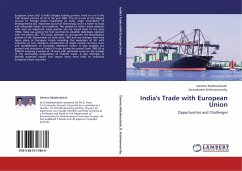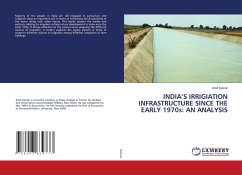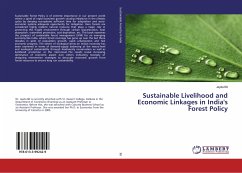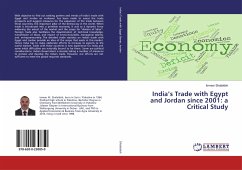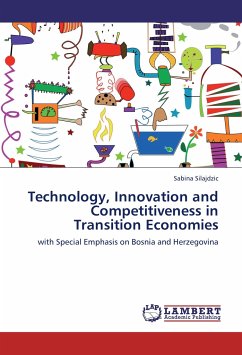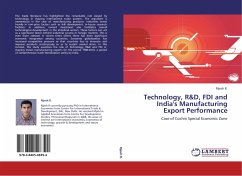
Technology, R&D, FDI and India's Manufacturing Export Performance
Case of Cochin Special Economic Zone
Versandkostenfrei!
Versandfertig in 6-10 Tagen
32,99 €
inkl. MwSt.

PAYBACK Punkte
16 °P sammeln!
The trade literature has highlighted the remarkable role played by technology in shaping international trade pattern. The argument is momentous in the case of manufacturing products. Industries invest heavily in non-price factors such as skill development, in-house research facilities. In addition, inward investment also facilitates overall technological development in the industrial sectors. These factors can act as a significant factor behind industrial success in foreign markets. This is even more relevant in recent times where there has been significant economic integration among countries...
The trade literature has highlighted the remarkable role played by technology in shaping international trade pattern. The argument is momentous in the case of manufacturing products. Industries invest heavily in non-price factors such as skill development, in-house research facilities. In addition, inward investment also facilitates overall technological development in the industrial sectors. These factors can act as a significant factor behind industrial success in foreign markets. This is even more relevant in recent times where there has been significant economic integration among countries. Economic globalization has increased competitive pressure so that countries has to innovate and improve products continuously so as to sustain market share. In this context, this study examines the role of Technology, R&D and FDI in shaping India's manufacturing exports for the period 1980-2010, a period of comprehensive trade liberalization policy by India.



